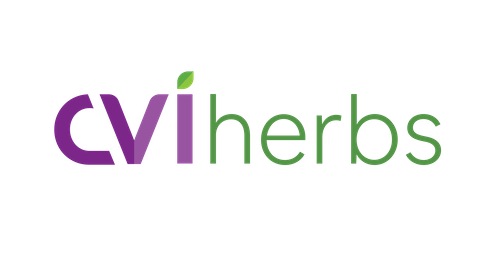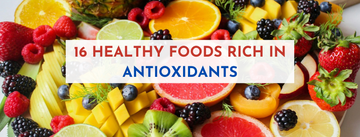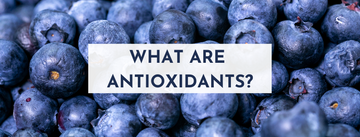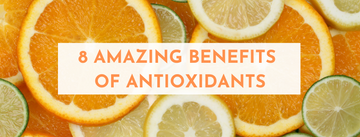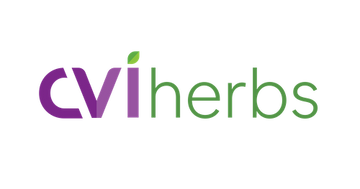Heartburn also referred to as acid reflux, is characterized by a painful or burning sensation in the chest. It happens when stomach acid flows back up into the esophagus, the tube linking the mouth and stomach.

Source: Heartburn is very common, affecting up to 25% of UK adult
Managing heartburn typically involves a combination of medication and adjustments to diet and lifestyle. Alongside these measures, certain beverages such as water, nonfat dairy, and herbal teas may help alleviate symptoms.
This article explores what to drink and not drink for heartburn relief.
Drinks for Heartburn Relief
Some drinks might not trigger heartburn, while others could actually ease the symptoms you're feeling. For instance, coffee, soda, and acidic juices can make reflux worse.
So, what can you drink instead? There are plenty of options that are less likely to cause reflux and might even help alleviate symptoms.
1. Herbal Tea
Herbal teas are rich in water, which can help dilute and weaken stomach acid. However, not all herbal teas are equally effective at relieving heartburn.
Some herbal teas that may heartburn relief include:
- Ginger tea: Ginger is renowned for its ability to alleviate nausea, gas, and bloating. While more research is needed, ginger's anti-inflammatory properties are believed to reduce irritation in the digestive tract and relieve heartburn.

Source: Ginger may reduce the chance of stomach acid backing up into the esophagus
- Licorice root tea: Licorice may be beneficial for heartburn as it boosts the mucosal lining of the esophagus, potentially shielding it from stomach acid irritation or you can find this ingredient in Cumargold.
- Chamomile tea: Chamomile possesses anti-inflammatory properties that can help ease heartburn symptoms. Some studies suggest that combining Roman chamomile with ginger may prevent and alleviate heartburn.
Adding a spoonful of honey to your herbal tea might also be beneficial. Honey has natural anti-inflammatory properties that can reduce inflammation in the esophagus.
- Peppermint Tea and Heartburn
Although peppermint can alleviate certain digestive symptoms, it may worsen heartburn. Peppermint lowers LES pressure, which can lead to acidic stomach contents refluxing into the esophagus.
2. Fruit Juice
Some fruit juices like citrus, pineapple, and apple can be very acidic and might trigger acid reflux symptoms. However, juices with lower acidity are less likely to cause GERD symptoms.
Juices with lower acidity include:
- Carrot juice
- Aloe vera juice
- Cabbage juice
- Freshly juiced drinks made with less acidic foods, such as beets, watermelon, spinach, cucumber, or pear
3. Smoothies
Smoothies are a tasty way to get more vitamins and minerals into your diet. They're also great for people with GERD.
When making a smoothie, use low-acidity fruits like pear or watermelon, similar to those found in reflux-friendly juices. You can also add green vegetables like spinach or kale for extra nutrients and to help reduce reflux.
Here's a simple smoothie recipe that includes spinach and plant-based milk. You can even freeze cut-up avocados to use in nutritious smoothies when you're short on time.
4. Water
Most water has a neutral pH of around 7.0, which can slightly raise the pH in your stomach. Drinking water can aid in digestion and help move food from your stomach to your small intestine, which may reduce acid reflux symptoms.

Source: Drinking more water can dilute stomach acid
Drinking too much water can upset the balance of minerals in your body, potentially increasing the risk of acid reflux. If you have any concerns about hydration, talk to a doctor or registered dietitian.
5. Coconut Water
Unsweetened coconut water is another good option for people with acid reflux or GERD. It contains beneficial electrolytes like potassium and helps maintain pH balance in your body, which is important for managing acid reflux.
6. Plant-Based Milk
For individuals with lactose intolerance or those who find that dairy products worsen their acid reflux symptoms, plant-based milk can be a suitable alternative.
There are various options to choose from, including:
- Soy milk
- Flax milk
- Cashew milk
- Coconut milk
- Oat milk
- Almond milk
Plant-based milk alternatives like soy milk tend to have lower fat content compared to most dairy products, making them a safer option for people with GERD.
7. Low-fat or skim milk
For some individuals, cow's milk can be difficult to digest. Whole milk contains a notable amount of fat. Consuming full-fat cow's milk and other high-fat foods may relax the lower esophageal sphincter, potentially causing or exacerbating reflux symptoms, as indicated by research from 2019.
The same study suggested that fats could also decrease gastric motility, which might prolong the presence of high-fat foods in the stomach.
If you incorporate cow's milk products into your diet, it's worth considering options with lower fat content.
Drinks to Avoid Heartburn
Certain beverages can exacerbate reflux symptoms and should be steered clear of. Examples include specific fruit juices, caffeinated drinks, and carbonated beverages.
1. Certain Juices
Highly acidic juices like citrus and tomato can worsen acid reflux.
Juices to avoid GERD may include:
- Lemon juice
- Orange juice
- Tangerine juice
- Lime juice
- Grapefruit juice
- Tomato juice
Citric acid, naturally found in citrus fruits, can irritate the esophagus. While the stomach can handle higher acidity, the esophagus is more sensitive.
For individuals with acid reflux, foods containing citric acid may reflux into the esophagus, causing irritation or damage.
When purchasing juice drinks, check for citric acid in the ingredients list, as it's often used as a flavoring. It may be advisable to avoid products containing citric acid to minimize the risk of reflux symptoms.
2. Coffee
While a morning cup of coffee is a beloved ritual for many, it can trigger symptoms in those with acid reflux. Coffee can stimulate increased gastric acid secretion, making reflux more likely. This can lead to heightened reflux symptoms.
The more coffee consumed, the more severe the symptoms may become. Other caffeinated beverages, such as sodas or caffeinated teas, can have similar effects.
A 2020 study confirmed that intake of these caffeinated drinks was associated with an increase in reflux symptoms compared to other beverages.
3. Alcohol
Alcohol can negatively impact acid reflux, regardless of its type. Hard liquor is more likely to exacerbate reflux rapidly, though even a glass of wine with a large or acidic meal can cause discomfort.
Excessive alcohol consumption may increase the risk of developing GERD and could cause mucosal damage in the stomach and esophagus.
Research from 2019 demonstrated a significant association between alcohol intake and the risk of GERD.
For individuals with acid reflux, it may be advisable to abstain from alcohol. However, if drinking alcohol, there are measures that may help alleviate symptoms, including:
- Drinking in moderation
- Staying hydrated
- Avoiding acidic or carbonated drinks
In Summary
Heartburn can indeed be uncomfortable, but it's manageable. Alongside adopting an eating plan to control heartburn, incorporating beverages that won't irritate your esophagus or trigger reflux can be helpful. Water, nonfat milk, and specific herbal teas may be beneficial for individuals with heartburn, while acidic juices, carbonated beverages, caffeine, and alcohol could worsen symptoms for some people.

